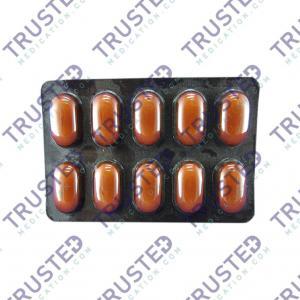
Fluconazole is a medication treatment for a variety of fungal and yeast infections. This is in the class of medications called triazole antifungals that effectively stops the growth of certain types of fungus that causes infection.
What condition does Fluconazole treat?
Fluconazole is mostly prescribed by many doctors for the treatment of infections caused by different kinds of fungus. These include:
- Many infections caused by candida such as infections in your blood or your body and thrush in men and women
- Brain infections called cryptococcal meningitis caused by a fungus called Cryptococcus
This is an antifungal medication that can also be used to prevent a fungal infection from developing. Fluconazole is only prescribed if you are likely to get this sort of infection. This includes people who:
- Are at risk of getting cryptococcal meningitis
- Keep getting vaginal thrush
- Have HIV or a weakened immune system
- Have had a bone marrow transplant
How does Fluconazole work?
Fluconazole is a type of medication called a triazole antifungal. This kills fungi and yeasts by interfering with their cell membranes. This medicine stops fungi and yeasts from making ergosterol. It is a substance that is an essential component of their cell membrane. Fluconazole causes holes to appear in the cell membranes that let vital constituents of the fungi and yeasts leak out. Through this, the fungi and yeasts are either prevented from developing or the infection is clear up.
What is the dosage of Fluconazole?
Fluconazole is an FDA-approved medication that comes as a capsule with the strengths of 50 mg, 150 mg, and 200 mg. The capsule is to be taken by mouth with a glass of water. The dose and how often you take it depends on your medical condition and recommendation from your doctor. Each dose may be taken with or without a meal/snack as directed. It is best if you take each capsule at the same time each day.
These are the usual doses for adults:
- For candida infections – 200 mg to 800 mg each day to be taken for several weeks
- For cryptococcal meningitis – 200 mg to 800 mg each day for several weeks and to stop it from coming back you may have 200 mg per day that is taken for a long-term
- For thrush – you can take a single dose of 150 mg
If this medication is to be used in children, the doctor will work out the right dose for them. It will depend on their infection, age, and weight.
If Fluconazole is taken once a week or every 72 hours, it may help to mark the days when you need to take it. Also, if you often take a dose, it may help to set an alarm to remind you. You may ask your healthcare provider for advice on other ways to remember your medicine. Do not stop taking this remedy unless your doctor tells you to do so. Finish the full prescription given to you. If you will stop this treatment, your doctor may gradually decrease the dose you are taking.
What are the precautions in using Fluconazole?
This medicine should be used with caution in people with:
- Liver or kidney problems
- Heart failure, an abnormal heart rhythm, or a slow/irregular heartbeat
- Disturbances in the usual levels of electrolytes such as magnesium or potassium in their blood
Using Fluconazole during pregnancy and breastfeeding:
- Most studies suggest that a single 150 mg capsule of this medicine will not harm a baby in the womb. However, this should not be used in pregnant women unless considered essential by your doctor.
- High-dose and long-term treatment with Fluconazole must only be used to treat infections only if it is life-threatening.
- This medication passes into breastmilk. However, it is usually considered to be safe to take by mothers who are nursing a full-term infant. Consult your doctor first before breastfeeding and taking a dose of Fluconazole.
Fluconazole should not be taken by people taking these medicines:
- Terfenadine
- Quinidine
- Erythromycin
- Cisapride
- Astemizole
Be aware of the possible side effects that may occur while taking Fluconazole:
- Headache
- Diarrhea
- Nausea and vomiting
- Abdominal pain
- Taste disturbance
- Indigestion
- Dizziness
- Decreased appetite
Medicines and side effects can affect each people in various ways. If you are concerned about these possible side effects or experienced an adverse reaction, consult your doctor or pharmacist.








